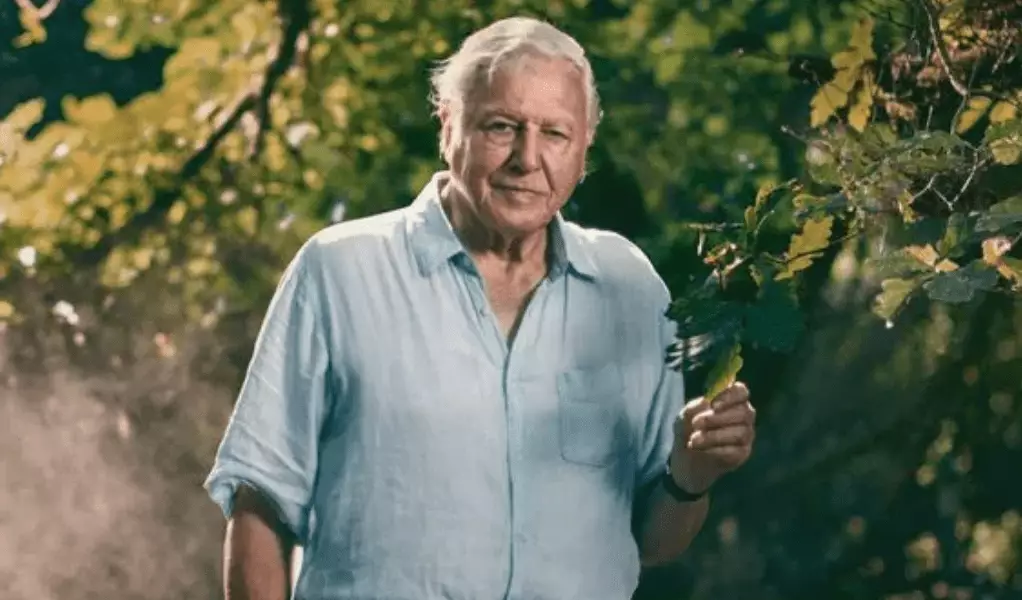The rapid advancements in artificial intelligence (AI) have led to revolutionary changes in various fields, yet they pose significant ethical dilemmas. Recently, renowned broadcaster and natural historian Sir David Attenborough articulated his concerns regarding unauthorized AI voice cloning—a topic that ignites discussions about authenticity, privacy, and intellectual property. The controversy intensified when Attenborough discovered that his own voice had been meticulously cloned and utilized in contexts he never authorized. His discontent reflects a broader fear among public figures and creatives regarding the misuse of AI technology to replicate their identities.
Upon receiving notification from the BBC regarding unauthorized AI voice clones, Attenborough’s articulate response captured public attention. He expressed deep unease regarding the appropriation of his voice in projects he had no involvement with, stating, “Having spent a lifetime trying to speak what I believe to be the truth, I am profoundly disturbed to find these days my identity is being stolen by others.” This statement reveals not only his personal stake in the matter but also highlights a larger narrative of identity theft and misrepresentation in the digital age. The issue at hand goes beyond individual rights; it speaks to the integrity of information and the authority of the original creator.
A particularly striking incident showcased Attenborough’s cloned voice narrated a clip from the BBC series “Asia,” making it difficult for listeners to discern between the original and the AI-generated version. The chilling realization that technology can duplicate human voices so seamlessly raises questions about authenticity in media consumption. Viewers tuned into the BBC segment were asked to identify the differences, and the results were notably alarming—most could not distinguish the two. This incident is emblematic of a rapidly blurring line between original and imitation in the audio-visual landscape, resulting in the potential for wide-scale misinformation.
The Bigger Picture: Ethical Implications
The emergence of AI-generated voices, particularly in contexts unrelated to the original creators, underscores significant ethical concerns. While some creators argue that the use of AI tools is harmless, many see it as a blatant violation of copyright and personal rights. The cloning of Attenborough’s voice for videos addressing contentious global issues, like the Ukraine-Russia conflict, raises ethical questions about narrative control and the potential for manipulation. This situation is emblematic of a growing concern: whose stories are being told and by whom? The risks of misinterpretation and distortion of intent are considerable, especially when the original voice is invoked in political or social discussions.
Legislative Developments and Public Reactions
In response to the growing concerns surrounding AI voice cloning, political action is being taken to safeguard individuals’ rights. In the United States, the bipartisan “No Fakes Act” was introduced recently to hold creators of unauthorized likeness clones accountable. This initiative is a critical step towards establishing clear regulations in an area that has outpaced existing laws. The involvement of well-known public figures like Scarlett Johansson, who previously objected to an AI voice that mirrored hers without consent, further emphasizes the urgent need for protective measures. Such incidents prompt important discussions about consent and the ethical limits of technological capabilities.
As the dialogue surrounding AI, consent, and identity evolves, the case of David Attenborough serves as a compelling catalyst for deeper exploration. His concerns resonate with many who feel that their identity can be exploited without proper representation or authorization. We are urged to consider how our technological advancements can uphold ethical standards, rather than compromise them. As society grapples with the implications of AI voice cloning, it is crucial to advocate for policies that respect creators’ rights and their narratives, safeguarding the integrity of art and information for future generations.
In light of the mounting pressure on public figures like Attenborough, the conversation about AI voice cloning is far from closed. As technology continues to advance at a dizzying pace, the essential challenge will be to balance innovation with ethical considerations, ensuring that individuals retain agency over their identities. Attenborough’s disapproval highlights a critical juncture at which society must critically assess the technologies we embrace and enforce regulations that protect not only famed personalities but also the foundational principles of truth and authenticity in our media.
